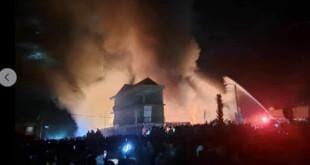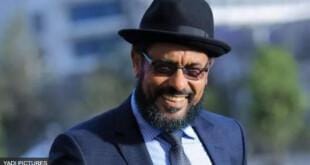by Mohammed Ademo
October 15, 2013 (OPride) – In early 1960s, Oromo dissidents from the Bale province in southeastern Ethiopia organized a small band of combatants to end the repressive and exploitative Amhara settler rule and the unscrupulous expropriation of Oromo land by absentee landlords.
It proved to be one of the biggest landmarks in Oromo people’s struggle for freedom and equality.
“God created us, man enslaved us, God did not create this man free and us slaves,” one of the pioneers, Colonel Hussein Bune Darara, once told a local journalist explaining the movement’s purpose. “It is to uproot this injustice that we embarked on the struggle for freedom.”
As noted in Ethiopia: Power and Protest by Gebru Tareke, the Bale province was only incorporated into the Ethiopian empire “in the late 188os after a brutal campaign mainly directed against the Awetu and Rayitu of Arsi Oromol clan.” Even then, Tareke contends that there was little cross-cultural contact between the chauvinistic Amhara-christian northerners and the predominantly Muslim Bale Oromos.
The launch of Bale uprising, in early 1960s, by revolutionary Oromo fighters under the leadership of General Waqo Gutu Usu marks a major turning point. It signifies the beginning of a coordinated Oromo armed resistance to unshackle the masses from Ethiopia’s feudalist and absolutist rule, according to Hangasu Waqo Lugo, 58, who joined the movement at a tender age of 8.
This extraordinary decade – otherwise known as the Sixties – saw tremendous social transformation among the broader Oromo populace including the founding of the Macha Tulama Association, the birth of Afran Qallo musical troupe, and severaldisconnected resistance movements around Oromia, the Oromo homeland.
The methods may be different but the grievances that spurred Oromo resistance in various locales were the same: to see an end to the feudal lordship which had usurped their land and dispossessed the peasantry. The Oromo, Ethiopia’s single largest ethnic group, make up about 50 percent of 92 million Ethiopian population.
To commemorate the 50th year of this movement’s beginning and its far reaching legacy, Oromo activists are organizing a grand event on Oct. 20 at the University of St. Thomas in Saint Paul, Minn. While many of the movement’s pioneers, including its leaders General Waqo Gutu, Haji Adam Jilo Webo, Musa Bati and countless others have passed away, next week’s event is expected to feature, for the very first time, prominent revolutionaries like Colonel Aliyi Chiri who ignited the flame of Oromo emancipation.
A watershed event in the history of Oromo struggle, the Bale Oromo movement began with a simply motto: to uproot injustice for once and all, or raise a generation of revolutionaries to fight on. The rallying cry, which captured the imagination of a whole generation, was the seizure of farmland back from feudal landholders and making the state cognizant of the masses growing social and political discontents.
The start of a guerilla warfare against a heavily armed feudal state did not have an auspicious start per se. First, this was unthinkable considering the fact that Haile Selassie was regarded as Elect of God and the whole country prostrate before him – as if in worship – let alone challenge his regime with a poorly equipped band of a peasant army. Second, the largely uneducated militants did not have access to modern weapons or military training. Rooted in local grievances, the movement weathered early setbacks to become one of the long drawn-out armed confrontations in Ethiopia.
–For Full Report click Opride





